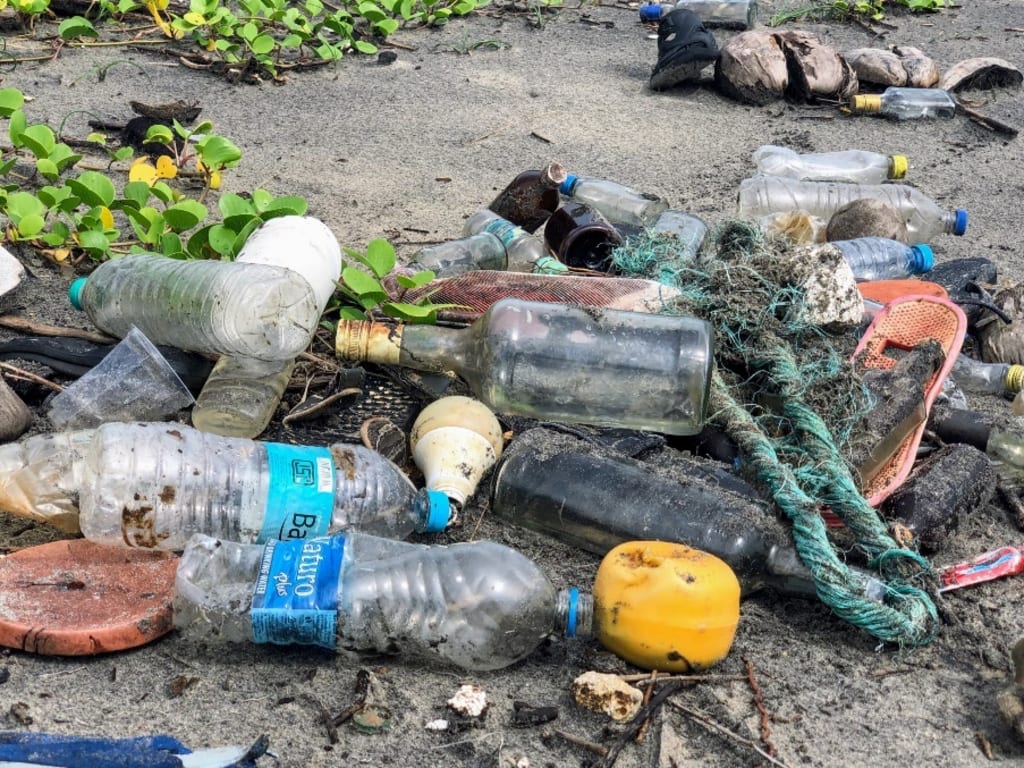
» KEY POINTS
- Trying to teach environmentalism to those opposed to believing there is a crisis is a fruitless and wasteful pursuit.
- Instead of emphasizing what needs to be removed, we should be focusing on what gains there are to be made.
- We should appeal to the basest, self-serving instincts of human beings to make sure they understand the personal benefits of saving the world.

Is the Earth warming at an unprecedented rate? Are humans causing this change through their actions?
It does not matter.
For those who do not believe that Global Climate Change is real or acknowledge that it is happening but do not believe humans have a material impact, there is no compelling narrative that will spur them into immediate action. The facts, figures, and scientific consensus are never going to make a dent in their perceptions. Yes, there are a few exceptions, but on a mass scale it is a fruitless argument. Frankly, it is the wrong approach.
Of course, we should still continue to educate others on the dangers of human-caused Global Climate Change and work towards a more conscientious future. However, that is a multi-generational project of changing human behavior and does not answer the question of “what can we do now?” In order to answer that, the conversation needs to be completely reversed. Let us pretend for a moment that the Earth is a stable system and no action is needed to reverse the ongoing trends. Then the questions simply become:
- If we still do all of the environmental projects, what is the worst that can potentially happen?
- What do we objectively gain by doing these projects anyway?
- Are we really in danger of losing anything? And if we are, is what we are replacing it with better anyway?
» CLEAN AIR, WATER, AND GROUND
Walking down the street, you see a plastic bag is fluttering, entangled in a tree. Further on, a storm drain has become completely clogged with wrappers from a local fast-food restaurant. Your walk takes you down to the water and you see someone has actually thrown a whole shopping cart in, where it will now lay forever.
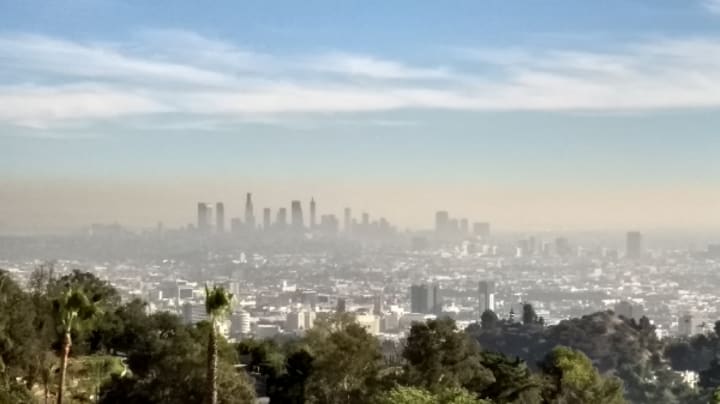
This is the world we live in. Trash is everywhere and it makes the very ground we walk on disgusting. Forget everything about the impact on animals and plant life; you are free to be selfish here. Who wants to walk through refuse? It is an assault on our senses—unless you are Oscar the Grouch. Cleaning up all of this mess would beautify the world we inhabit. And candidly, beauty increases the value of a space. That is not an esoteric thought, either, but a literal truth in real estate. Property values go down proportionately to the amount of pollution nearby and the general state of an area. Cleaning up around a parcel makes it more desirable to be lived in, which in turn can be a personal benefit.
Of course, this does not just apply to what we can see, but what we inhale. Smog settles over cities, industrial parks, highways, and everywhere that the combustion of fossil and other fuels happen. Smog unambiguously makes it difficult to breathe and—again speaking to our baser instincts—looks gross. In places like Mexico City, the situation got so bad that in the early 1990s private companies started installing “oxygen booths”, phone booth-like contraptions to get a few minutes of clean air. Removing particulate matter from the air does nothing less than make it easier to respire.
As with the land and air, the rivers, lakes, waterways, and seas can all benefit. While it may cost businesses more money to maintain protections against runoff and for underground water, it is cheaper for people to have access to potable H2O nearby. Further, freshwater is the most important resource in the world for every purpose imaginable—from drinking to farming, from fracking to nuclear power, from cleaning to building. We need as much of it as we can get and doing everything to ensure our limited supplies are readily and easily available benefits all groups, no matter their intentions.
» INDEPENDENCE & NATIONAL SECURITY
When it comes to water in particular, though, it is a security issue. While places like the United States may have enough freshwater for a population greater than the over 330 million living in the country in the 2020s, that is not the case everywhere in the world. Freshwater scarcity has already led to skirmishes and wars. Even if someone does not believe that a warming world is making water less available, an overpopulated one certainly is. As populations grow around the planet, they need additional sources of water, which in turn leads to more trouble.
But what about closer to home? For simplicity’s sake, let us focus on the United States’ perspective. In the U.S.A. a bigger issue is energy usage. Great strides have already been made in efficiency and these continue to expand with each year. Efficiency means less energy usage, which in turn means less costs to do an action. There is no downside to continuing to innovate and enforce more efficient use of energy as waste is truly money lost.
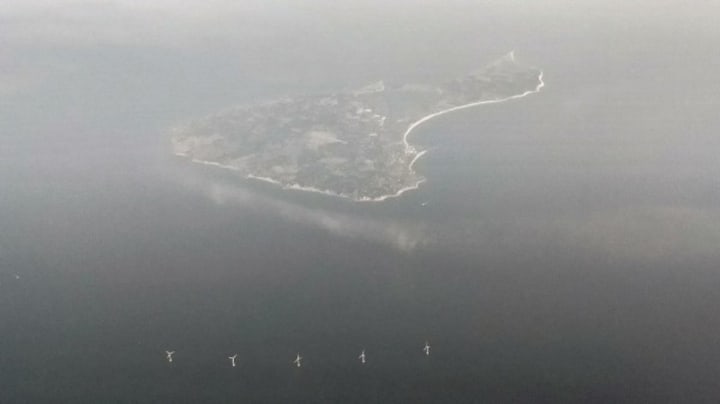
The United States in the 2020s still produces the majority of its energy by burning fossil fuels and similar substances. Despite strong production at home, a vast amount of this petrol comes from foreign sources. In other words, we have made ourselves dependent upon outside countries and multi-national corporations, which is a security threat. It has been seen many times when there are issues with the delivery system—whether intentional or not—destruction, loss, and death have followed. Why would we want to be intertwined with others when we can do it all on our own? Why open ourselves up to that unnecessary risk?
Even something like shale oil is highly dependent on a foreign country (namely: Canada). Thus beyond cleaning up our air for the self-serving reasons above, we can also move to completely renewable energy sources for nationalistic reasons. What is a better American story than innovating with our own technology and creating an infrastructure and distribution system that is ruggedly independent? Why should any American be beholden to some foreign government (or even the faraway Federal or State government) when we can utilize our own local resources and do it better? At the same time, we will no longer be sending money overseas (or out of the region) to regimes that do not support us, our values, or our more natural allies.
The United States is a place of extensive resources. We can control nature and harness the sun, wind, waters, movements of the earth, and even the slightest fluctuation of temperatures. At the end of the day, an American destiny can be demonstrated by taming Gaia herself and bending her to our will. [Note this is intentional misogyny.]
» JOBS AND INFRASTRUCTURE
In order to move away from a greenhouse gas dependent society, a lot must be developed. Solar panels and fields, windmills and their farms, hydrogen liquefaction systems and pipelines, geothermal machines and the vehicles to move them—everything must be built, installed, maintained, and replaced over time. Modernizing our infrastructure is not a one-time activity, though; it will be an ongoing effort that creates permanent jobs in manufacturing, transportation, maintenance, technology, support, and more.
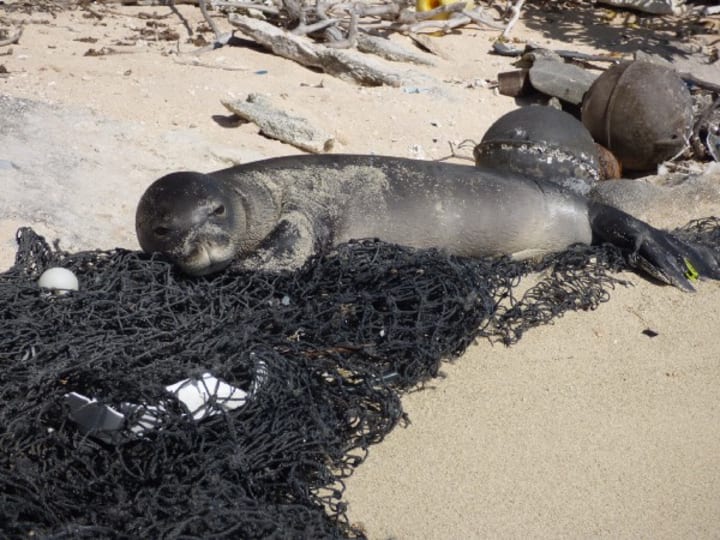
A “Green Economy” is a misnomer. There is no difference between electricity being produced by coal and it being produced by a windmill or a paddle-wheel. In either situation, it is still plain electricity (electrons free-flowing through conductors) that is used to power all of our modern conveniences. A “Green Economy” takes absolutely nothing away. Instead, it is just a simple replacement. In other words, there is no separate and different “Green Economy”. As the saying goes:
[It’s t]he Economy, stupid.
James Carville, 1992
Political strategist to Bill Clinton
While a “Green Economy” may sound like something is being lost, an “Economy” for people is simply about gains. Here, the semantics do truly matter and are getting in the way of making progress. Instead of focusing on what will be lost or removed, the answer is thinking about all that can be added. We are just swapping out one old technology for a new one, something natural in our capitalist system. Would we try to save cassettes and VHS a from CDs and DVDs? And in turn, would we avoid using streaming services to protect CDs and DVDs? No, the American ideal is to encourage further advancement and replace the old with new and better. The “average person” will not lose a thing.
» LIFE AS NORMAL
As a matter of fact, the “average person” will not notice a difference at all. Everyday life, the tools we use, the entertainment we enjoy, the places we go—none of this will change. Someone does not need to be “aware” and “know” about climate science in order to profit from it. Are you one of the few people who understands how the device you may be reading this on works? What percentage of the population can replace a sink faucet? How many people even know how a simple desk fan functions? Knowledge of scientific principles and applications is not a requirement to take advantage of and benefit from a technology.
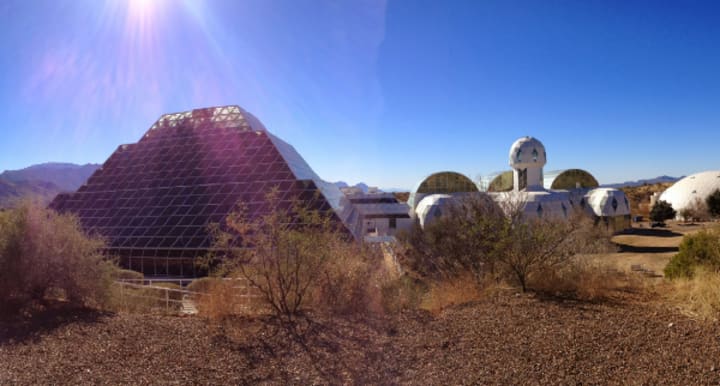
That is the real message to walk away with here. Having a cleaner environment does not cost anything for the everyday Joe and Jill Schmoe. On the contrary, over time those cleaner streets, air, and waterways will—at a minimum—provide the most personal kind of benefits. Technologies get cheaper as they get more widely spread and dispersed through economies of scale. Because of this, in the long run home-brewed solutions mixed with efficiencies mixed with a shinier world will result in lower costs, thus more dollars that could be spent on something else or saved for another day.
Does it matter if we clean up the world for purely selfish reasons?
Absolutely not.
Anyone wanting to teach a “lesson” about humanity’s impact on the world should swallow their pride and realize that they are taking the wrong approach. You can be “right” and argue all day long and get nowhere, or you can forget about all that and shift the paradigm to get the necessary results to save the Earth. Appeal to the basest instincts and the worst stereotypical characteristics expected of members of the human race. Let them know they will lose absolutely nothing and focus on everything they will gain. Their creature comforts are not under threat; there will be jobs aplenty; they will have more money; the world will be less gross everywhere they go; and wherever they live will be free of interference from outsiders.
Even if nearly every scientist and environmentalist is completely wrong, it makes no difference. Implementing their plans will—in a worst-case scenario—personally benefit you in every way.

The above piece is an excerpt from Always Divided, Never United: And Other Stories During a Time of Pandemics and Politics by J.P. Prag, available at booksellers worldwide.

Learn more about author J.P. Prag at www.jpprag.com.

An earlier version of this article appeared on Medium.
About the Creator
J.P. Prag
J.P. Prag is the author of "Compendium of Humanity's End", "254 Days to Impeachment", "Always Divided, Never United", "New & Improved: The United States of America", and "In Defense Of...", and more! Learn more at www.jpprag.com.






Comments
There are no comments for this story
Be the first to respond and start the conversation.